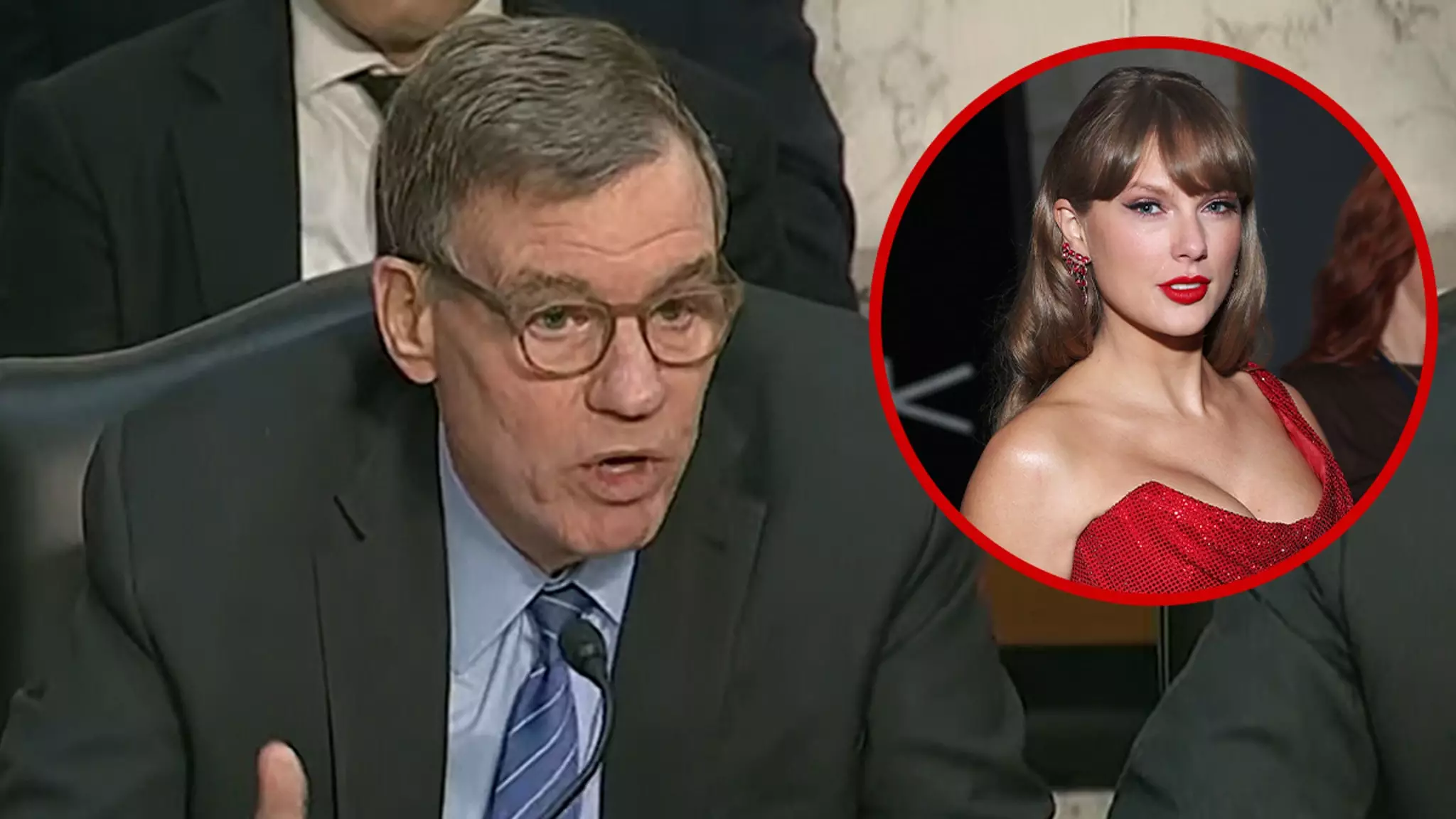In a realm where celebrity status often feels detached from the hard realities of national security, recent developments have demonstrated that pop icon Taylor Swift has found her place in the corridors of power. During a recent Senate intelligence hearing, her name was invoked amidst heated discussions about global threats and alliances. This seemingly trivial moment exemplifies a growing phenomenon: the intertwining of celebrity culture with significant governance issues. How does a musician inadvertently become a symbol of international cooperation and intelligence-sharing? The answer lies in the unique prism through which we now view global security.
Vigorous Conversations on Global Threats
The context for Swift’s name-drop was a troubling security incident involving a member of the media gaining access to sensitive conversations among high-ranking officials. Coming on the heels of a report outlining casual discussions about classified military operations, the situation raises grave concerns about the potency and professionalism of intelligence communications. At a time when information leaks could compromise the safety of citizens, it feels disconcerting that engaging conversations about such critical matters could be mingled with disparaging remarks about international allies. Evidently, these so-called “free-loaders” are more than just inconveniences; they can be pivotal partners in thwarting attacks.
The hearing was led by Senator Mark Warner of Virginia, who pertinently pointed out that sharing intelligence can be a life-saving necessity. Relating to the thwarted terrorist plot intended for a Taylor Swift concert in Austria emphasizes the direct and tangible consequences of international cooperation. This incident is not merely about a celebrity; it serves as a narrative device that reinforces the importance of cultivating friendly relations with allies—to safeguard lives anywhere, from concert venues to crisis zones.
The Dangers of Disrespecting Alliances
Warner’s remarks during the hearing encapsulated a broader truth: dismissive attitudes towards allies could have dire consequences for both global stability and individual security. Intelligence sharing, as highlighted in his reference to the thwarting of the terror plot against Swift’s concert, is a testament to effective collaboration between nations. The cancellation of the Vienna concert and the subsequent intensification of security measures were not just reactive. They underscored a critical intersection between celebrity and national security.
This indicates a potential shift in how intelligence communities will need to operate moving forward. The growing awareness that threats can target not just military bases, but also public events where individuals converge—such as concerts, sporting events, and other gatherings—requires a paradigm shift. The implications of this understanding expand beyond Swift, framing her as an unlikely but poignant ambassador of the pressing necessity for solid international relationships.
Media’s Role in Security Discourse
The shocking revelation that a journalist found themselves in the thick of classified conversations presents a dual-edged sword. On one hand, it exclaims the precariousness of the systems in place; a journalist should not play an inadvertent role in steering sensitive discussions. On the other hand, this incident emphasizes the role of the media in documenting and bringing to light discussions that otherwise might fall under the radar, albeit at a cost.
This particular case has also instigated discussions about accountability, as revealed by the casual conversations conducted over a commercial messaging app about sensitive matters. As security standards receded into less robust realms, the need for vigilance is underscored. No longer can intelligence agencies operate without scrutiny—not just from politicians and the public, but also from within their ranks. The integration of civilian perspectives can indeed be enlightening, but it begs the question: to what extent should they be included?
While the hearing showcased Taylor Swift’s unexpected relevance in matters of international security, it also illuminated essential questions regarding the operational integrity of intelligence agencies. The conversation around cooperation, respect for allies, and the sharing of vital information is crucial—I would argue it is imperative. The involvement or name recognition of pop stars may seem trivial at first glance, yet they act as cultural touchstones that can engage a broader audience in complex issues. As the world wrestles with the threats of terrorism and rogue states, Swift stands as a reminder that keeping our allies close—and our priorities aligned—could very well be a matter of life and death.

